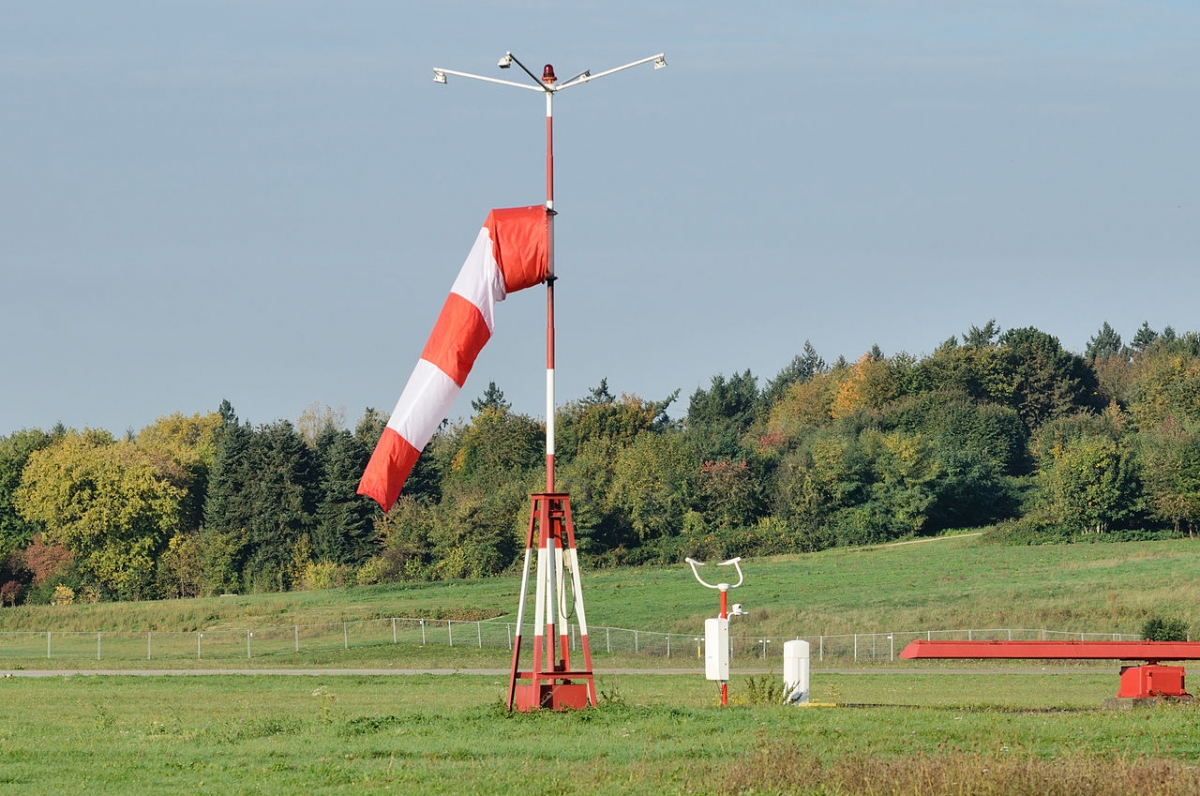Windsock (also called a wind cone) is a conical textile tube that resembles a giant sock. It can be used as a basic indicator of wind speed and direction, or as decoration. Denis Hains Hydrospatial Advocate posted via his group on LinkedIn

They are typically used at airports to show the direction and strength of the wind to pilots and at chemical plants where there is a risk of gaseous leakage. They are also sometimes located alongside highways at windy locations.
Wind direction is the opposite of the direction in which the windsock is pointing, so a windsock pointing due north indicates a southerly wind. Wind speed is indicated by the windsock’s angle relative to the mounting pole; in low winds, the windsock droops; in high winds, it flies horizontally.
Alternating stripes of high visibility orange and white were initially used to help to estimate the speed of the wind. Each stripe adds up to 3 knots to the estimated wind speed.
However, some circle frames mountings cause windsocks to be held open at one end, indicating a velocity of 3 knots, even though anemometers would show no wind speed. A fully extended windsock suggests a wind speed of 15 knots (28 km/h; 17 mph) or greater.















